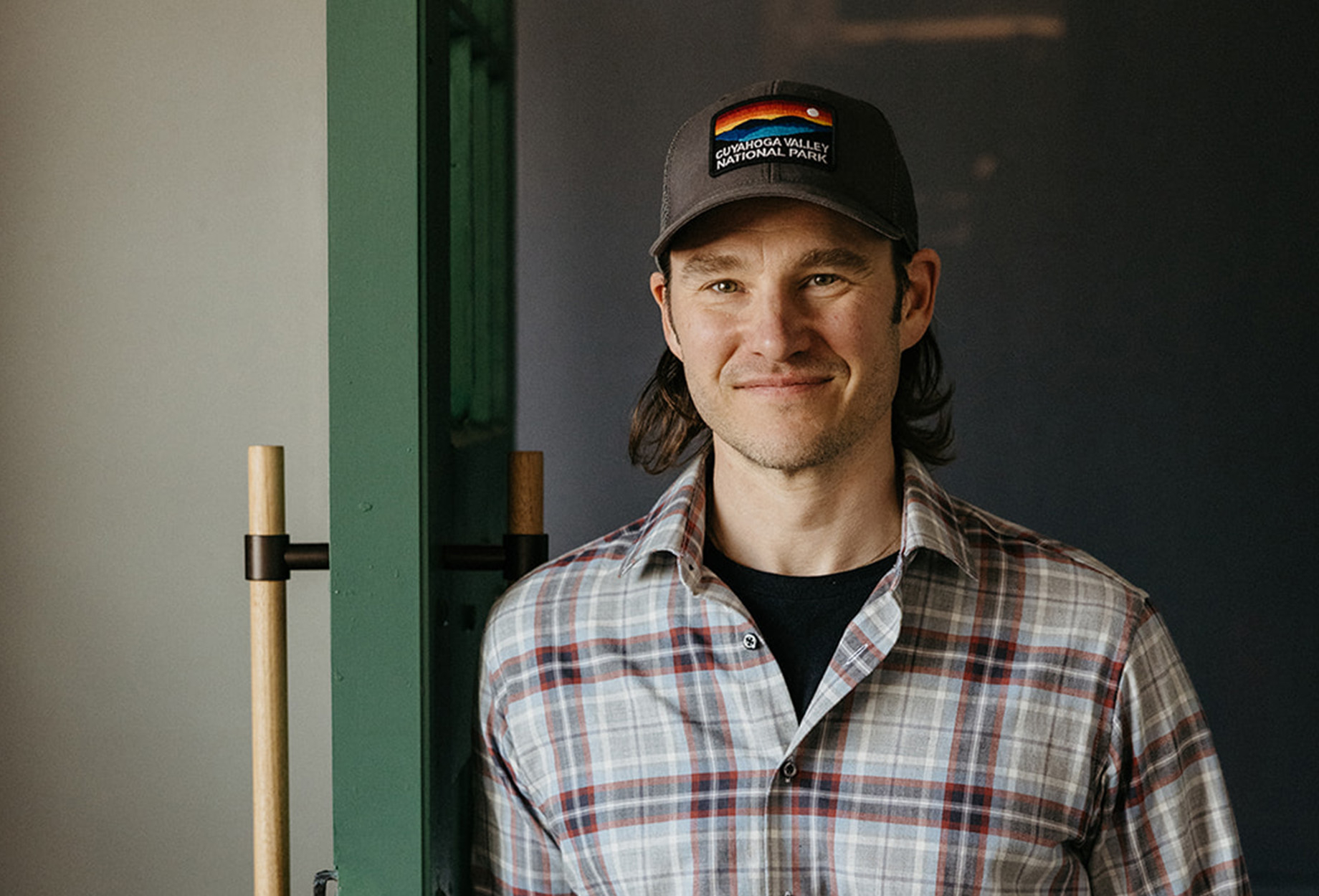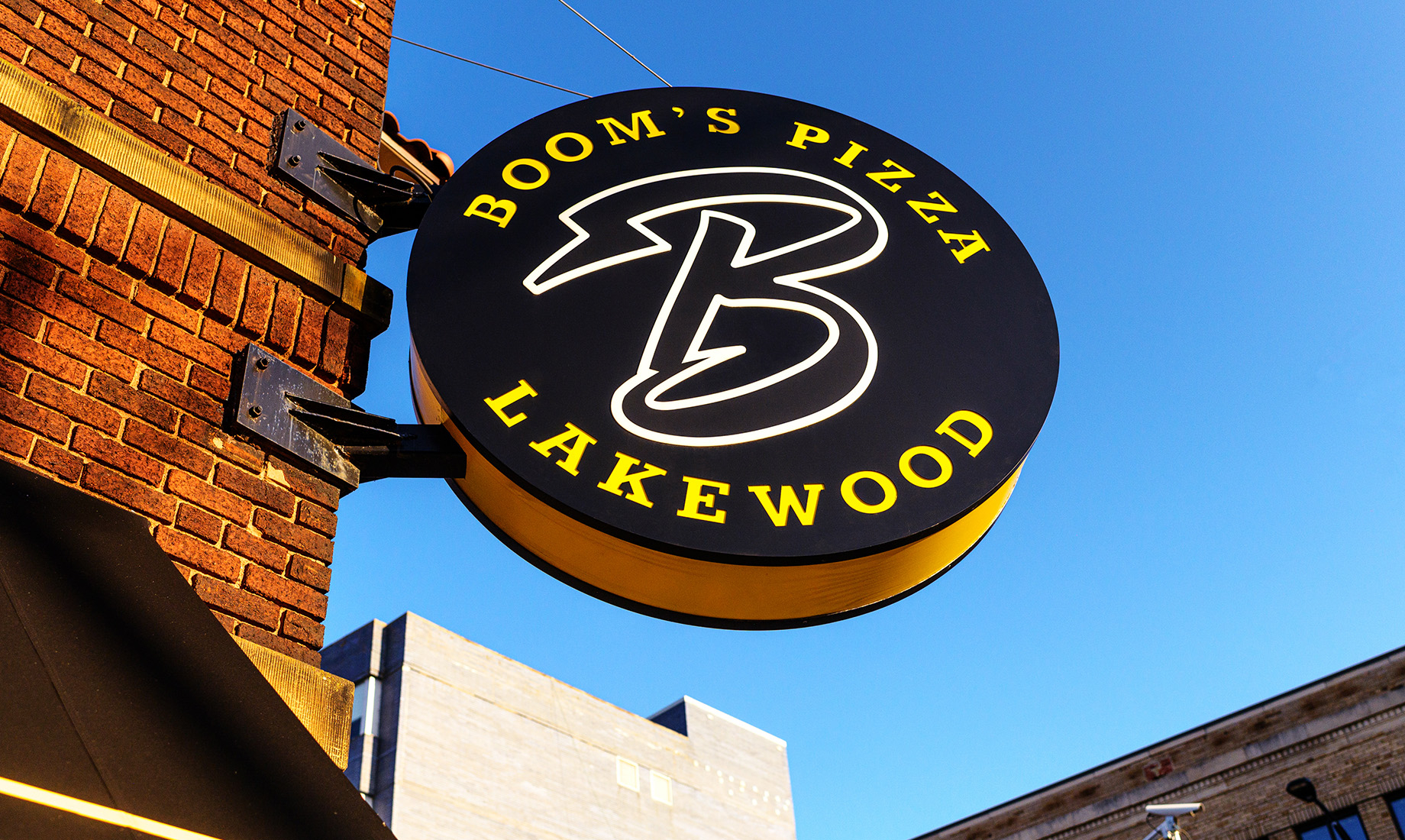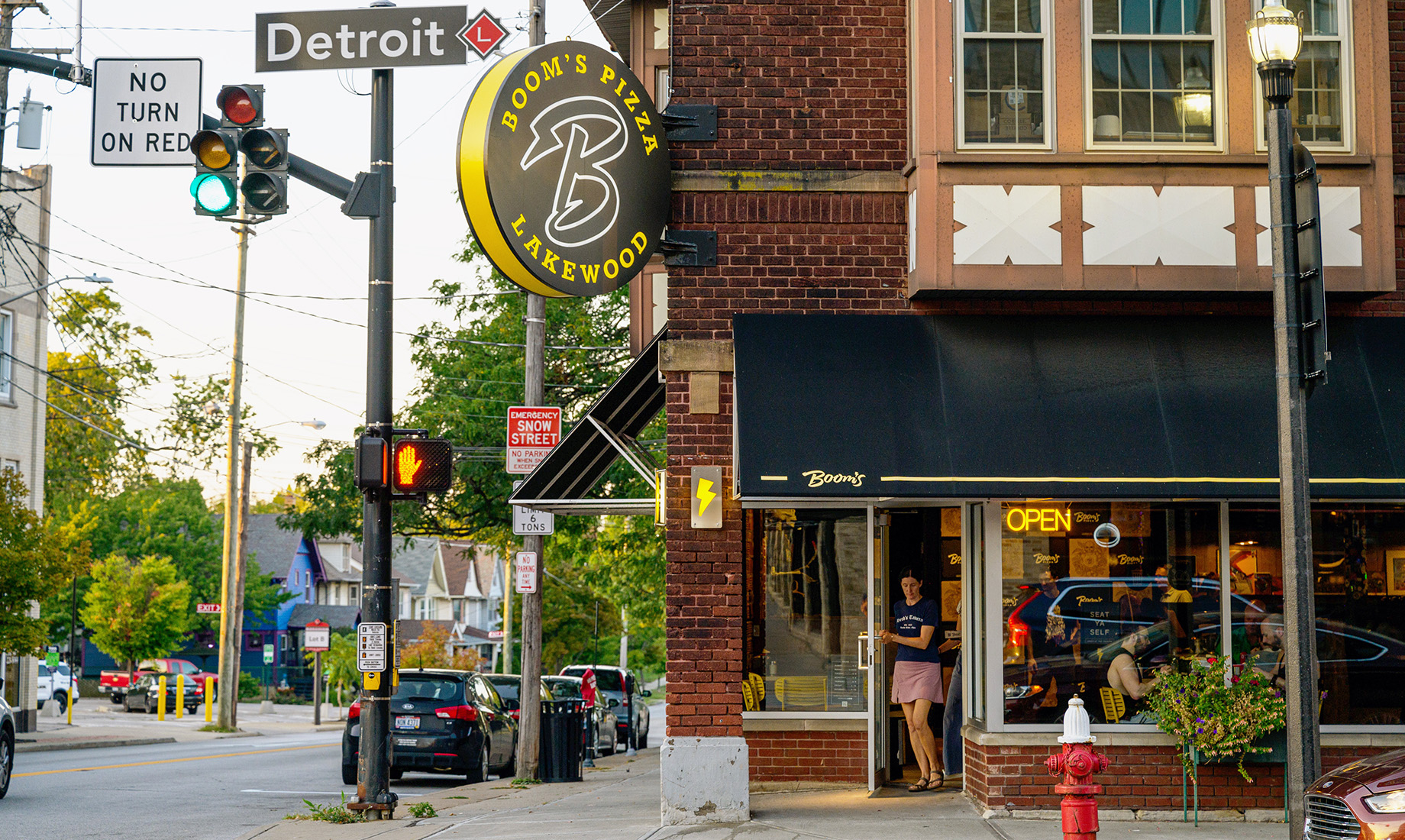The Short Version
- Chef Ben Bebenroth never planned to open a restaurant — Spice Kitchen and Bar began as a catering kitchen.
- Despite acclaim, Spice proved financially unsustainable, showing the limits of mission-driven work without a solid model.
- The pandemic prompted him to close Spice and step away from burnout with no regrets.
- He pivoted to pizza for its scalability, demand and ability to balance quality with simplicity.
- Boom’s Pizza, named after his grandfather, reflects a smarter, leaner business approach.
- Research and experience confirmed pizza’s strong neighborhood loyalty and ability to weather economic shifts.
- Bebenroth’s upcoming carryout-only stores require less capital and are built to withstand economic downturns.
- His key lesson: Don’t make long-term decisions in fear. Pause, breathe and choose clarity.

Cleveland chef Ben Bebenroth has built his career around telling stories through food. But his own story has been one of unexpected pivots.
As the founder of the city’s acclaimed, now-shuttered Spice Kitchen and Bar, Bebenroth earned a reputation for hyperlocal, seasonal cuisine. His dishes, often foraged and always creative, were rooted in the landscape around him. But despite its success, he had never actually planned to open a restaurant.

Cleveland chef Ben Bebenroth. Photo courtesy of Spice Hospitality Group
A Restaurant by Accident
Bebenroth was a caterer looking for kitchen space when, in 2011, he bought a former restaurant for $125,000 because it had a working kitchen and affordable rent. “I ran it [as a catering company only] for about three months,” Bebenroth recalled, “before [former city council member] Matt Zone knocked on my door and asked: ‘When are you opening the restaurant?’”
“I’m not,” Bebenroth replied.
“Yes, you are,” said the councilman. “You can’t just put brown paper on the windows of a storefront in my neighborhood and not have a plan to open.”
So Bebenroth figured it out. With $40,000 for renovations, Spice Kitchen and Bar opened on New Year’s Eve 2012 and then promptly closed for two weeks of training. “The food was great,” Bebenroth said, “but we had no idea what we were doing.” Still, he made it work.
Over time, he shifted his focus to the farm behind the restaurant, hosting classes and deepening his connection to food systems.
He closed the restaurant in the wake of the pandemic, but he was relieved rather than defeated. “I was like: ‘Now we get to move on with our lives and we don’t have to work 100 hours a week.’”
Reinventing the Model
He continued operating the catering company, but post-COVID, he made another surprising move, into fast-casual dining. Drawing inspiration from his late grandfather — a frugal and strategic World War II veteran known as Boom — Bebenroth launched Boom’s Pizza.
With Boom’s legacy in mind, he designed a restaurant model that could honor his craft without demanding every hour of his day. The first location opened in January 2022. A second followed in June 2024, and two more are on the way.
Bebenroth spoke with ICSC Small Business Center contributing editor Rebecca Meiser about making hard decisions, learning from burnout and building a business model that works for real life.
You’ve said that running an environmentally sustainable restaurant was ironically financially and personally unsustainable. What’s the biggest lesson you learned about balancing mission and profitability?
My mistake was that allegiance to sustainability became death through passion. We were so focused on food that I wasn’t paying attention to people or profit. I saw profit as a dirty word, but it’s actually what allows you to invest in your team. I would work 100 hours a week. The restaurant would lose $100,000. The catering would make $150,000.
I was getting inside info from my brother, who works in Homeland Security, and he said: “This is going to be bad.” That was when I realized: “I can put this Sisyphean task to sleep without shame.” After we closed, people asked [if I missed the restaurant], and I was like: “Not at all.”
What was the hardest part?
Letting go of an amazing team. At the time, we were on track for a James Beard award. But I’m glad I didn’t end up on that path. It would’ve inflated what I was doing for the wrong reasons. I’d have been raising money just to keep the most creative kitchen in the city alive, but I wouldn’t have been doing anything for my work-life balance.
And not that I’m looking to sell my business, but I’m certainly not looking to run it until I’m dead. That restaurant though was a 100% expression of Ben Bebenroth. I couldn’t have sold that to anyone.

The sign outside the first Boom’s Pizza location in Lakewood, a Cleveland suburb. The fast-casual concept is named after chef Ben Bebenroth’s nickname for his grandfather. Photo courtesy of Spice Hospitality Group
What sparked your pivot toward pizza, and what did you learn about the market that influenced your concept?
Spice Kitchen and Bar was some of the hardest work I’ve ever done. It was completely weather and seasonal dependent. It wasn’t scalable. I thought: “There’s got to be a better way to do this.”
So I called my friend and said: “I want to do a landscape study. Where do people eat when they’re not at home? What are the biggest trends?” That research led us to a crazy stat: 93% of Americans have a least one slice of pizza per month.
We already had a great flatbread program at the restaurant. I’d worked on pizza projects … and had thrown a bunch of pizza parties for clients over the years. I was comfortable with it. But now I wanted to understand where pizza was going. People still want craft, but it has to be affordable. They want quality, but with a bit more cheese, a bit less fuss.
And the thing about pizza is that it is a neighborhood decision. You do not drive all the way across town for a pizza. So [my partners and I] thought: “Where are the neighborhoods that are lacking great pizza?” Yes, pizza is everywhere but there’s a ton of crap pizza out there. So we learned into that. I can just take all of that culinary focus and intent and energy and put it into four ingredients. Once you get your dough dialed in, it’s pretty much locked. And then the process becomes the thing you can replicate.

Photo courtesy of Spice Hospitality Group
Your first two locations included dine-in. Why are you shifting to a carryout-only model for the next one?
A carryout-only store — with no dining room — we can open for about $30,000, maybe a little more. We’ve looked at the numbers [at our other locations]: The average carryout order is $26.50, while dine-in is $33.80 [thanks to] drinks and other food. If I can decrease my [cap expenditures], and I can still retain about 75% of gross revenue, I can [build out a store] and recoup the investment in a year and a half.”
What’s one of the biggest lessons you’ve learned as a business owner?
Don’t make long-term decisions when you’re under fire. That was really tested during COVID. We were scared. I refunded 350 grand of [catering] customer deposits on the first seven days of the pandemic, which was totally illogical. It was a fear-based move. I didn’t want to go down with these people’s money. So now, I’m like: “Let’s not panic. Let’s reassess and catch our breath and get blood flowing back into the front of the brain instead of reacting from the nervous system.”
By Rebecca Meiser
Contributor, Commerce + Communities Today